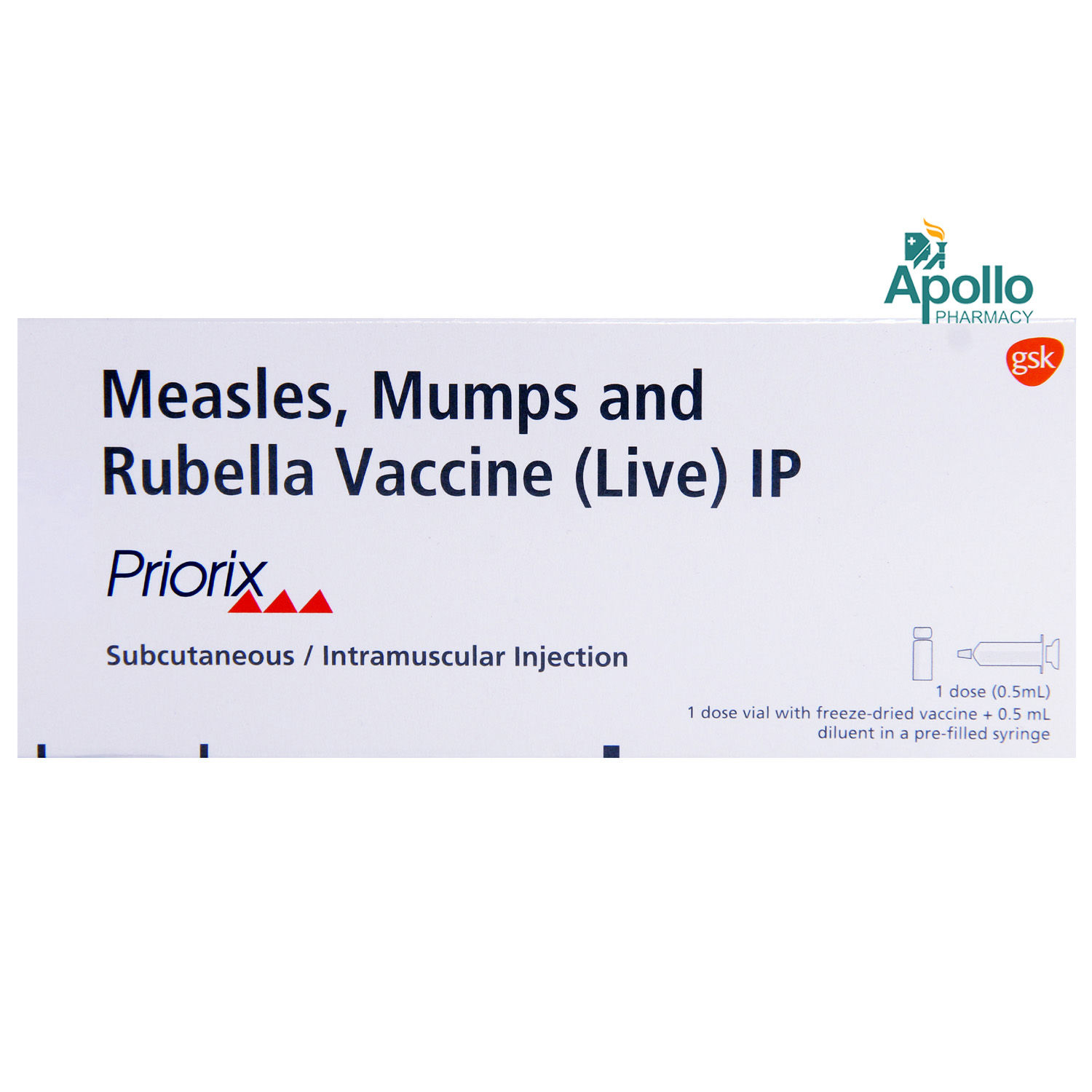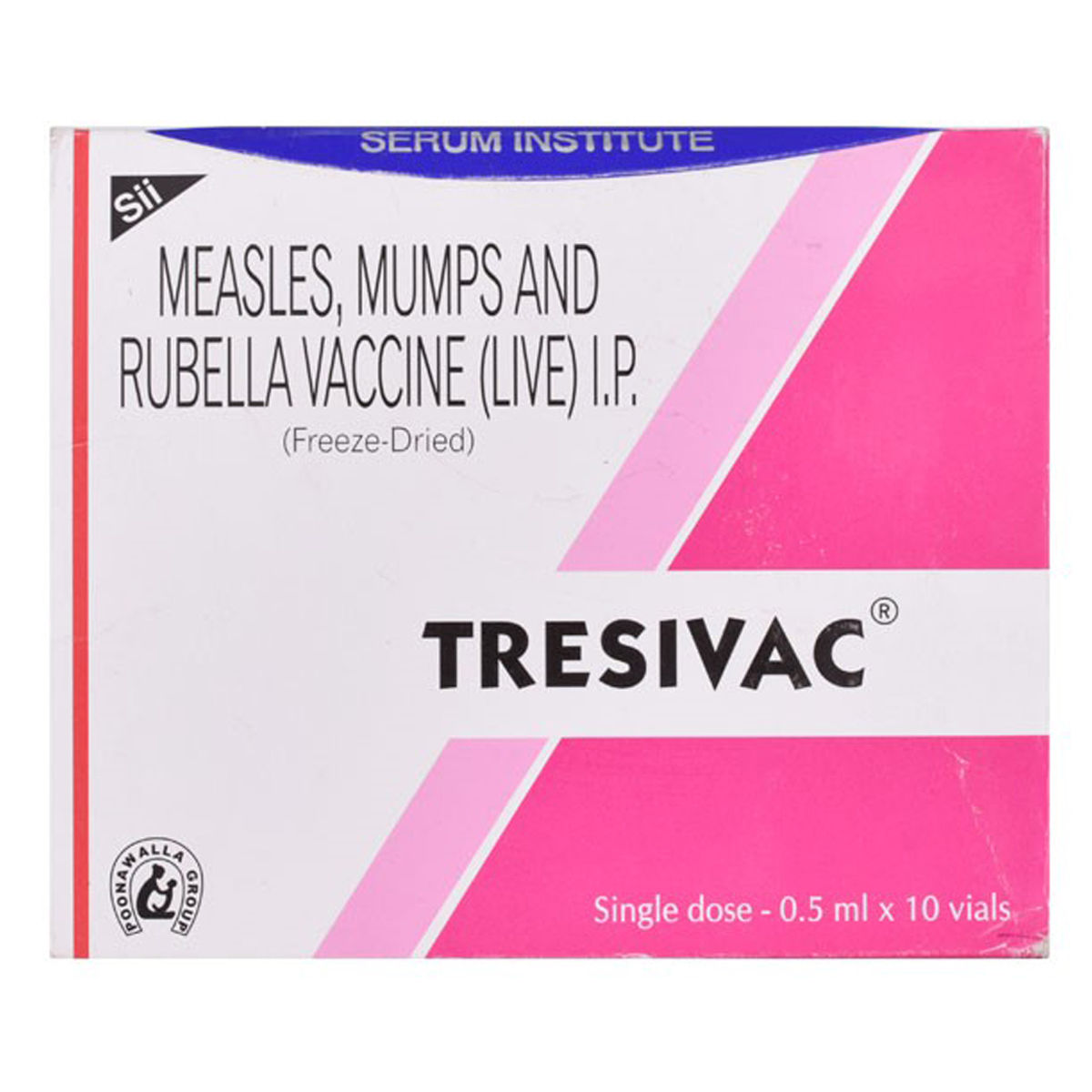Polio Vaccine
About Polio Vaccine
Polio Vaccine is a vaccine belonging to the class of immunizing agents. It is used to prevent poliovirus infection. Poliovirus is a highly infectious viral disease caused by the Poliomyelitis virus. It is mainly spread from person to person through infected faeces.
Polio Vaccine contains an inactivated poliovirus vaccine used to prevent poliovirus disease. It is a trivalent vaccine containing type I, type II, and type III antigens.
Polio Vaccine may cause certain common side effects such as irritability, headache, pain, redness, tenderness, anorexia, fever, and soreness at the site of injection. Most of these side effects will last for a few days and resolve by themselves. Polio Vaccine will be administered by a trained healthcare professional in the hospital.
Polio Vaccine is contraindicated in patients who are hypersensitive to neomycin, streptomycin, and polymixin B. Let your doctor know about your detailed medical history, including any chronic disease, neurological disease, or severe illness. Pregnant and breastfeeding mothers should inform their doctor before receiving Polio Vaccine.
Uses of Polio Vaccine
Medicinal Benefits
Polio Vaccine is an inactivated trivalent vaccine that contains type I, type II, and type III antigens, which is used to prevent Poliovirus disease. It is given before exposure to the poliovirus. Polio disease cannot be cured but can be prevented with safe and effective vaccination.
Directions for Use
Storage
Side Effects of Polio Vaccine
- Soreness
- Tenderness
- Allergic reactions
- Pain at the site of injection
- Irritability
- Anorexia
- Arthralgia
- Myalgia
- Fever
- Tiredness
- Vomiting
Drug Warnings
Avoid receiving Polio Vaccine if you or your child have any known hypersensitivity or anaphylactic reaction (shortness of breath, wheezing, chest tightness, anxiety, confusion, or fever are some symptoms) to a previous dose of Polio Vaccine or any of its components. Polio Vaccine may cause syncope, altered immune competence, and severe allergic reactions in some patients. Hence, patients should be observed carefully after receiving the vaccine. This medicine is not intended for use in infants below 6 weeks of age. Inform the doctor right away about any medications that you or your child are currently taking and about any previous vaccinations or medical history. Regarding special populations, inform your doctor if you are pregnant or breastfeeding before receiving the vaccination.
Drug Interactions
Drug-Drug Interaction: No interactions found.
Drug-Food Interaction: No interactions found.
Drug-Disease Interaction: Polio Vaccine should not be used in case of a previous severe allergic reaction to Polio Vaccine or any of its components.
Drug-Drug Interactions Checker List:
Safety Advice

Alcohol
consult your doctorAlcohol does not interact with vaccines. However, please consult your doctor for more information.

Pregnancy
cautionLimited data is available on the effect of Polio Vaccine in pregnancy. Hence, if you are pregnant or planning to be pregnant, inform your doctor before receiving Polio Vaccine. Your doctor may prescribe this medicine if the benefits outweigh the risks.

Breast Feeding
cautionLimited data is available. if you are a nursing mother, inform your doctor before receiving Polio Vaccine.

Driving
not applicable-

Liver
cautionInform your doctor if you or your child have liver problems before undertaking vaccination.

Kidney
cautionInform your doctor if you or your child have kidney problems before undertaking vaccination.

Children
safe if prescribedPolio Vaccine is routinely given in neonates above 6 weeks of age. Please consult your doctor if you have any concerns.
Habit Forming
Diet & Lifestyle Advise
- Apply an ice pack on the injection site in case of pain or soreness.
- It is important to keep hydrated post-vaccination. Make sure to drink plenty of water.
- In case of fever, consult your doctor before taking any OTC medication.
- Ensure a balanced diet for proper nourishment and immunity.
- Keep your or your child's immunizations up to date.
Patients Concern
Disease/Condition Glossary
Poliovirus disease: It is a highly infectious disease caused by the Poliomyelitis virus. It spreads from person to person through infected faeces. This virus mainly affects the spinal cord, making the person paralysed. Symptoms may include fever, fatigue, headache, vomiting, stiffness of the neck and pain in the limbs. It mostly occurs in children below 5 years of age.
FAQs
Polio Vaccine is used to prevent poliovirus disease. It is a trivalent vaccine containing type I, type II, and type III antigens.
Polio Vaccine may cause redness at the site of injection. However, if the condition persists or worsens, consult a doctor.
The majority of people receive Polio Vaccine as children. Typically, children receive five doses of Polio Vaccine at two months of age, one dosage at 18 months, and booster doses at 4 to 6 and 14 to 16 years of age. Most adults do not need Polio Vaccine because they were already vaccinated as children. But some adults are at higher risk and should consider Polio Vaccine.
There are two main types of polio vaccines, one is inactivated polio vaccine (IPV) which is given as an injection and contains inactivated (killed) virus and the other one is oral polio vaccine (OPV) which is taken by mouth and contains weakened (attenuated) virus.
Yes, Polio Vaccine is necessary. Polio is a highly infectious disease that can lead to permanent paralysis or even death. Vaccination is the most effective way to prevent polio and protect individuals and communities from this severe disease.
No, IPV is considered more effective than Polio Vaccine. However, it is rather costly and challenging to administer. Because Polio Vaccine is a live version of the virus, it was shown that administering it alone resulted in more incidences of polio than inactivated poliovirus vaccine (IPV).
The common side effects of Polio Vaccine are irritability, headache, pain, redness, tenderness, anorexia (eating disorder), fever, and soreness at the site of injection. If any of these side effects persist or worsen, please consult your doctor.








